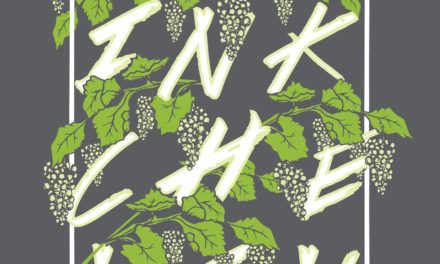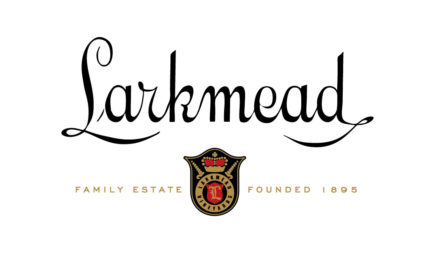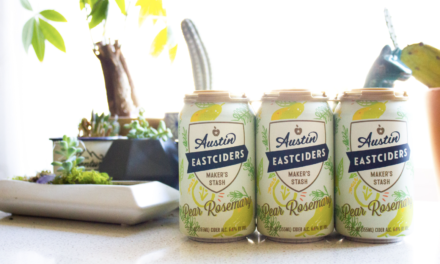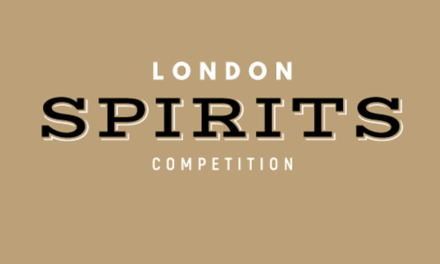In March 2019, we started a simple, two-question online survey: Who Do You Admire Most? Why?
We wanted to identify the makers that others in the industry looked to for innovation, motivation, and inspiration. The votes we received were filled with great anecdotes and heartfelt dedications. Here are this year’s winners.
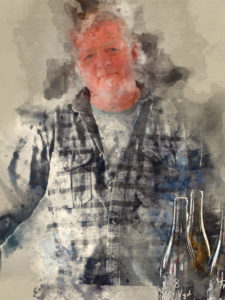
Dan Barwick, Trecini Cellars and Paradise Ridge Winery (Santa Rosa, Calif.)
Most Admired Winemaker
Dan Barwick, Trecini Cellars and Paradise Ridge Winery (Santa Rosa, Calif.)
When and why did you start making wine? I did my first harvest as an intern in 1991 at Matanzas Creek Winery, and it was then that I fell in love with this business. 2019 will be 22nd harvest with Paradise Ridge and 20th with Trecini.
Share a proud professional moment. In 2001, we made our first Paradise Ridge Rockpile Cabernet, and more than one of my winemaker friends were kind enough to say it was one of their favorite cabernets from Sonoma County.
How does it feel to be the Most Admired? I’m not sure, but my wife Sonia is concerned it may make me intolerable.
What beverage is inspiring you right now? As always, the bounty of Sonoma County: I’m drinking a lot of awesome aromatic white wines from new energetic producers—and just loving them.
Who do you admire? Anyone with the courage to start up their own brand and showcase their individuality.
Quote about Dan Barwick: “Dan met tragedy when Paradise Ridge burned to the ground. He lost all of his work and all of his wine both professionally and his own collection. He overcame the hurdle and began producing wine again shortly after settling into a new facility. I admire Dan for being able to bounce back quickly and keep the businesses alive. Where would they be without a great winemaker?”
Honorable Mention: Mike and Lori Budd, Dracaena Wines (Paso Robles, Calif.)
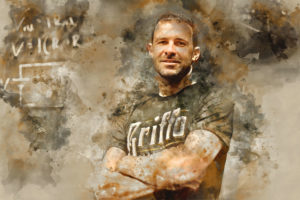
Michael Griffo, Griffo Distilling (Petaluma, Calif.)
Most Admired Distiller
Michael Griffo, Griffo Distilling (Petaluma, Calif.)
How, when, and why did you start distilling? In 2002 as an undergraduate at UC Berkeley, I was in a physics lab distilling carbon nanotubes for experiments in quantum mechanics. It wasn’t until the end of graduate school that it dawned on me that we couldn’t drink what we were distilling and, if I shifted my focus to ethanol, then we’d have a lot more fun.
A few years later, my wife (then girlfriend), Jenny, and I were at a friend’s winery when I cracked a joke about how we should open a winery. She suggested we open a distillery instead. Now we find ourselves, more than a decade later, crafting what we love and with the good fortune to share it.
When did you found Griffo Distilling? We founded Griffo Distillery in 2013. It took a few years to build out the distillery and get it up and running. During that time, we worked to develop our flagship Scott Street Gin recipe. All that hard work paid off when it won a Gold Medal at the San Francisco World Spirits Competition right out of the gate. While our gin gained recognition, we were also quietly brewing and distilling whiskeys. After patiently waiting years for the whiskey to mature, we released our first whiskeys less than two years ago. Then on a whim, we produced a coffee liqueur as a seasonal release, and people were so excited about it that we got hate mail when it sold out. So now we’ve partnered with Equator Coffee & Teas to create an incredible liqueur.
Share a proud professional moment. I think one of the proudest moments I’ve had was when we won our award for Best Spirit at the Good Food Awards. The founders of Slow Food, Carlo Petrini and Alice Waters, were there celebrating the craft, care, and responsibility we all hold in creating our food. Every person there had a story of their struggle to create. I’m proud to be part of the craft distilling community and proud to have had a chance to share a moment with other craft food producers to celebrate all our hard work.
How does it feel to be the Most Admired? It feels pretty incredible. To be in an industry with so much history and breadth, it’s amazing to be given this honor. Our team at Griffo does a fantastic job. Everyone puts in so much hard work and care with every element.
What’s inspiring you right now? Lately I’ve been into Genepi. The floral character I get from it evokes the aromatics of high altitude meadows: flowers and marshy grasses soaked with glacial melt. These digestifs are really inspiring to me, because they capture my imagination and achieve that special “something” that makes an evening so much more.
Who do you admire? Greta Thunberg is strong and courageous in her convictions and sense of duty. She’s filling a need in our society as someone to step up and speak with a powerful voice that people stop and listen to. In her innocence and power, she’s explaining the reality of our global crisis in a way that’s captured the attention of world leaders and the media. Hopefully, her work on the world stage will sway global consciousness into action.
Quote about Mike Griffo: “He’s consistently innovative and uses a rigorous scientific process, blended with a love of craft, flavor and ingredients, to make some of the most beautiful whiskeys out there.”
Honorable Mention: David Woods, Wiggly Bridge Distilling (York, Me.)
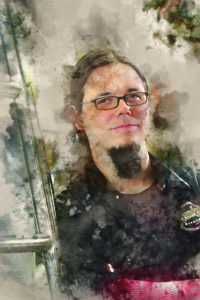
Jeremy Kosmicki, Founders Brewing Company (Grand Rapids, Mich.)
Most Admired Brewer
Jeremy Kosmicki, Founders Brewing Company (Grand Rapids, Mich.)
How, when, and why did you start making beer? My cousin and I bought a homebrew kit in 1994 when we were 19 years old. We were really getting into the craft beers that we started seeing on the shelves of specialty stores (fortunately we had a few older friends to help with those purchases). My cousin was going to college in Kalamazoo and we fell in love with Bells’ beers. We soon realized we could buy the equipment and ingredients to make our own beer at home, and that seemed like a worthwhile idea. A couple more of our friends got into it, and we started experimenting with writing our own recipes. One of those friends was Nate Walser, who went on to become Founders head brewer from 2001 to 2005. Early versions of beers like Breakfast Stout can be traced back to those homebrewing days.
How long have you been at Founders? I took an entry-level job at Founders in 2000, working on the packaging line. Founders’ original head brewer left the company in 2001, which is when Nate took over (he had been assistant brewer at another local brewery). I became Nate’s assistant brewer in 2002, and we really changed the direction of company with the types of beers we started making. We went from brewing amber ales and wheat beers to double IPAs and barrel-aged stouts. I took over as head brewer in 2005 when Nate moved on. In 2016, we hired a brewing manager to handle the day-to-day management of the brewing team, and I took the title of brewmaster. This freed up my time to focus on research and development, travel, and bigger-picture ideas.
Share a proud professional moment. In 2010, we won four medals at the World Beer Cup. I’m pretty sure we had only ever won one medal at a major competition in all the years before that. The Craft Brewers Conference was held in Chicago that year (only a couple hours from our home in Grand Rapids), so we had a pretty big crew with us, including our bosses and owners. To get called up to the stage four times that night in front of our entire industry felt pretty amazing.
How does it feel to be the Most Admired? I don’t even know what to say! I feel incredibly blessed to be in the position I’m in, and to be able to work at company that really cares about our product and the people who work here. I’m surrounded by brilliant co-workers who are committed to producing our beers at the highest level of quality and who let me do what I do best, which is to get a beer idea out of my head and into an executable plan. I really just want to create beers that are fun and enjoyable to drink and to steer this company through a rapidly changing and ever-evolving industry. It means a lot to me to know that people appreciate the ideas I’ve had and the effort I’ve put in over the past couple decades.
What’s inspiring you right now? Sometimes I get a little tired of drinking beer, especially later in the evening, and I like to switch to cocktails. I’ve been able to use these cocktail flavors to inspire some cool beer ideas. So far, I’ve made beers inspired by the mai tai, Margarita, Lynchburg lemonade and white Russian. Seems like there’s still a lot of fun to be had here….
Who do you admire? Jason Perrault is the most important hop-breeder of our generation. He’s developed some hop varieties, like simcoe and citra, that have really changed and inspired our industry. I go and visit him every year to see what he’s been up to and how his projects are coming along. He needs the feedback of us brewers to help steer his breeding projects in the right direction, and these new varieties will help determine what the future of craft beer tastes like. He’s brilliant, hard-working, and one of the nicest guys I’ve ever met.
Quote about Jeremy Kosmicki: “Jeremy brews incredible beer. But even more than that, he does it uniquely—one case in point, when Founders expanded with a 300-barrel brewhouse, Jeremy had it custom-built as a combo mash/lauter tun—unheard of in the industry. Why? So that his beer would be as consistent as when brewed on a 30-barrel system. He’s inspiring in his creations—and plays in the Founders house band.”
Honorable Mention: Scott Ungermann, Anchor Brewing Company (San Francisco, Calif.)
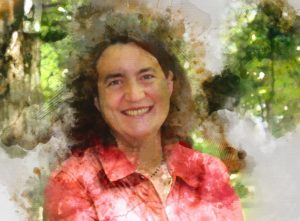
Eleanor Leger, Eden Specialty Ciders (Newport, Vt.)
Most Admired Cider Maker
Eleanor Leger, Eden Specialty Ciders (Newport, Vt.)
How, when, and why did you start making cider? I started making ice cider in our farmhouse basement in the winter of 2007-2008 with my husband, Albert. I’d left a job and hadn’t figured out what to do next, and we had tasted ice cider in Montreal the year before and wondered why someone wasn’t making it in a serious way in Vermont. We decided to give it a try for fun. One thing led to another, and we started producing naturally sparkling dry ciders in 2012. As of 2019, we’ve made more than 20 different types of ciders based on various techniques and apple varieties.
How long have you been at Eden Ciders?
I’m a co-founder with Albert, and I’ve run the business from the beginning.
Share a proud professional moment. There have been so many more than we deserve! One thing we weren’t allowed to talk about at the time was that our ice cider was served in the Obama White House for the National Governors Association dinner.
How does it feel to be the Most Admired? Not quite believable! I’m not sure how this happened, but I hope it’s because people feel I’m passionately working to make fine cider a legitimately recognized option at the dinner table, for the benefit of our industry, and for the benefit of the apple growers who depend on our success for their survival.
What’s inspiring you right now? I’m really interested in wines made naturally that are truly and classically delicious without all sorts of acetic, Brett, and bacterial flaws. As a fermenter, it’s the true test for me: Can you make it without adding anything or taking anything away, and have it still be a great expression of the quality of the fruit that can stand the test of time and aging? That’s what great winemakers could do before the age of wine technology, and I guess I’m working on how to do it for cider. We have a long way to go though. It’s definitely not easy, not fast, and not cheap—and you have to start with great apple varieties grown on purpose for making cider.
Who do you admire? Alison Hooper, founder of Vermont Creamery. She put artisan goat cheese on back on the map in the United States, and she’s been a leader in growing the artisan cheese industry overall. I hope we can do the same in cider.
Quote about: “[Eleanor is] intelligent, funny, and sensible. She’s also willing to step up and serve the larger cider community and isn’t afraid to stand up for what she believes in. And she makes some damn fine cider.”
Honorable Mention: Gregory Hall, Virtue Cider (Fennville, Mich.)






